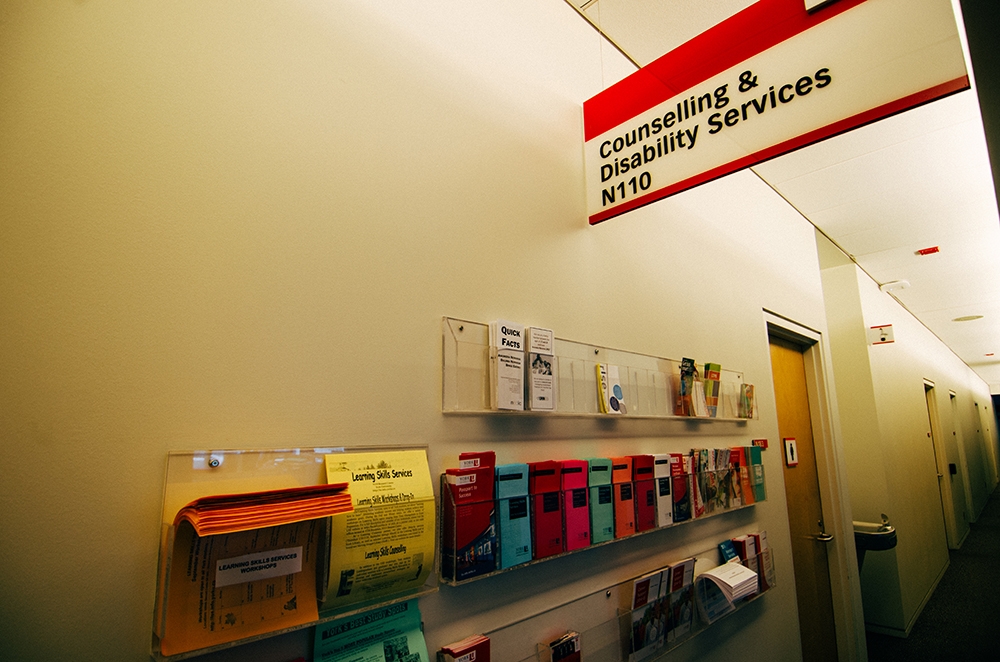Alex Kvaskov | News Editor
Featured image: York’s CDS office offers year-round mental health support to students. | Michael Zusev
York students may have more cause for optimism and hope this semester, with the university giving its mental health services a shot in the arm in the form of extra mental health counsellors.
“Last year, the number of personal counsellors increased by 1.5 full-time equivalents, while enrolment has remained relatively constant. Hence, the ratio of counsellors to students at the Keele campus has improved slightly since 2015,” says Janice Walls of York media.
York estimates the ratio of counsellors to students at Keele campus is now one counsellor for every 3,600 students, improved from one to 4,358 in 2012. In fact, York’s counsellor-to-student ratio in 2012 was considerably worse than rivals U of T, Ryerson University and the University of Waterloo.
As a response to increased demand for counselling, York consulted with students, faculty members and staff a few years back to determine priorities.
“The responses indicated that quick intake appointments should be a priority in order to identify issues and level of need in a reasonable period of time,” says Walls. “The improvements to this triaging system means that students can usually get an intake appointment within five business days, or at most within 10 during very busy periods.”
Students will have to wait for ongoing personal counselling sessions to begin, but this system enables staff to offer intake appointments more quickly, according to Walls.
“In response to the increasing demand for service, Personal Counselling Services has increased the number of group counselling options,” she adds.
“If the issue is appropriate, and the student wishes to, they may in the meantime join group counselling sessions, which can be very powerful in addressing stress management, mood, relationships and transition to university.”
Personal counselling is funded through student ancillary fees, which means that the rising proportion of students who need or want access to personal counselling poses a very large challenge, adds Walls.
“The counsellor-student ratio has remained fairly consistent over the years because ancillary fees are increased at about the rate of inflation,” she states.
Not all are convinced. Zhala Rahim, president of Reach Out at York University, a mental health advocacy organization, says that adding more counsellors is the obvious answer, but there is a lot more that can be done.
Rahim suggests a mandatory requirement for all students, staff and faculty to take a mental health training session, similar to a General Education course.
“For instance, the university can work together with student initiatives, like Reach Out, who facilitate workshops, speaker panels and field trips to help students cope with stress,” says Rahim. “Supporting student-led organizations with mandates to reduce the stigma associated with mental health would send the message that York truly cares about its student body.”
Rahim says that meetings can be arranged twice a semester with student leaders, who would act as ambassadors for the needs of their peers.
“After all, no one understands what students are going through better than students themselves,” she states.
According to Rahim, many students become discouraged by the long wait times at Counselling and Disability Services. “Because they feel they can’t get the help they need, they resort to suffering in silence,” she laments.




